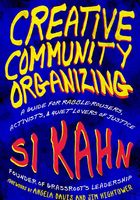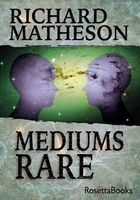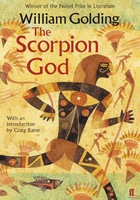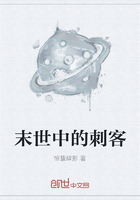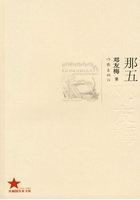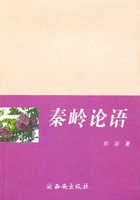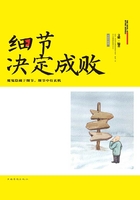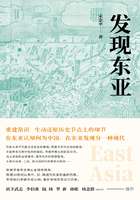Distant Relations
NEVERTHELESS, AT supper that evening I mentioned to my mother that I had run into our distant relation Füsun while buying a handbag for Sibel.
"Oh, yes, Nesibe's daughter is working in that shop of ?enay's up there, and what a shame it is!" said my mother. "They don't even visit us for the holidays anymore. That beauty contest put them in such an awkward position. I walk past that shop every day, but I can't even bring myself to go inside and say hello to the poor girl—nor in fact does it even cross my mind. But when she was little, you know, I was very fond of her. When Nesibe came to sew, she'd come too sometimes. I'd get your toys out of the cupboard and while her mother sewed she'd play with them quietly. Nesibe's mother, Aunt Mihriver, may she rest in peace—she was a wonderful person."
"Exactly how are we related?"
Because my father was watching television and paying us no mind, my mother launched into an elaborate story about her father, who was born the same year as Atatürk and later attended ?emsi Efendi School, also just like the founder of the Republic, as you can see in this school photograph I found many years later. It seems that long before he (Ethem Kemal, my grandfather) married my grandmother, he had made a very hasty first marriage at the age of twenty-three. Füsun's great-grandmother, who was of Bosnian extraction, had died during the Balkan Wars, during the evacuation of Edirne. Though the unfortunate woman had not given Ethem Kemal children, she already had a daughter named Mihriver by a poor sheikh, whom she'd married when she was "still a child." So Aunt Mihriver (Füsun's grandmother, who had been brought up by a very odd assortment of people) and her daughter Aunt Nesibe (Füsun's mother) were not strictly speaking relatives; they were more like in-laws, and though my mother had been emphasizing this for years, she had still directed us to call the women from this distant branch of the family "aunts." During their most recent holiday visits, my mother had given these impoverished relations (who lived in the backstreets of Te?vikiye) an unusually chilly reception that led to hurt feelings because two years earlier, Aunt Nesibe, without saying a word, had allowed her sixteen-year-old daughter, then a student at Ni?anta?? Lycée for Girls, to enter a beauty contest; and on subsequently learning that Aunt Nesibe had in fact encouraged her daughter, even taking pride in this stunt that should have caused her to feel only shame, my mother had hardened her heart toward Aunt Nesibe, whom she had once so loved and protected.
For her part, Aunt Nesibe had always esteemed my mother, who was twenty years older, and who had been supportive of her when she was a young woman going from house to house in Istanbul's most affluent neighborhoods, in search of work as a seamstress.
"They were desperately poor," my mother said. And lest she exaggerate, she added, "Though they were hardly the only ones, my son—all of Turkey was poor in those days." At the time, my mother had recommended Aunt Nesibe to all her friends as "a very good person, and a very good seamstress," and once a year (sometimes twice) she herself would call her to our house to sew a dress for some party or wedding.
Because it was almost always during school hours, I wouldn't see her during these sewing visits. But in 1957, at the end of August, urgently needing a dress for a wedding, my mother had called Nesibe to our summer home in Suadiye. Retiring to the back room on the second floor, overlooking the sea, they set themselves up next to the window from which, peering through the fronds of the palm trees, they might see the rowboats and motorboats, and the boys jumping from the pier. Nesibe having unpacked her sewing box, with the view of Istanbul adorning its lid, they sat surrounded by her scissors, pins, measuring tape, thimbles, and swatches of material and lace, complaining of the heat, the mosquitoes, and the strain of sewing under such pressure, joking like sisters, and staying up half the night to slave away on my mother's Singer sewing machine. I remember Bekri the cook bringing one glass of lemonade after another into that room (the hot air thick with the dust of velvet), because Nesibe, pregnant at twenty, was prone to cravings; when we all sat down to lunch, my mother would tell the cook, half joking, that "whatever a pregnant woman desires, you must let her have, or else the child will turn out ugly!" and with that in mind, I remember looking at Nesibe's small bump with a certain interest. This must have been my first awareness of Füsun's existence, though no one knew yet whether she would be a girl or a boy.
"Nesibe didn't even inform her husband; she just lied about her daughter's age and entered her in that beauty contest," said my mother, fuming at the thought. "Thank God, she didn't win, so they were spared the public disgrace. If the school had gotten wind of it, they would have expelled the girl…. She must have finished lycée by now. I don't expect that she'll be doing any further studies, but I'm not up-to-date, since they don't come to visit on holidays anymore…. Can there be anyone in this country who doesn't know what kind of girl, what kind of woman, enters a beauty contest? How did she behave with you?"
It was my mother's way of suggesting that Füsun had begun to sleep with men. I'd heard the same from my Ni?anta?? playboy friends when Füsun appeared in a photograph with the other finalists in the newspaper Milliyet, but as I found the whole thing embarrassing I tried to show no interest. After we had both fallen silent, my mother wagged her finger at me ominously and said, "Be careful! You're about to become engaged to a very special, very charming, very lovely girl! Why don't you show me this handbag you've bought her. Mümtaz!"—this was my father's name—"Look—Kemal's bought Sibel a handbag!"
"Really?" said my father, his face expressing such contentment as to suggest he had seen and approved the bag as a sign of how happy his son and his sweetheart were, but not once did he take his eyes off the screen.

